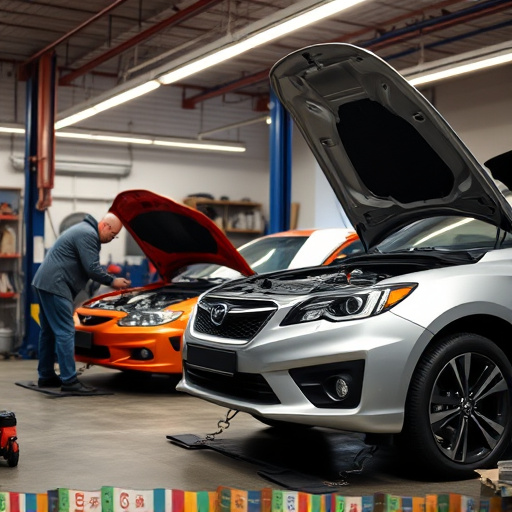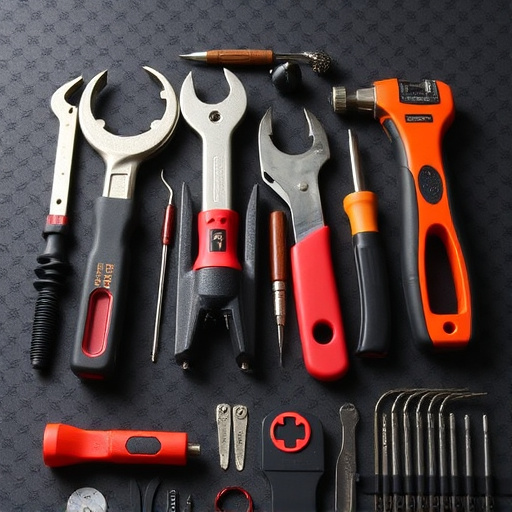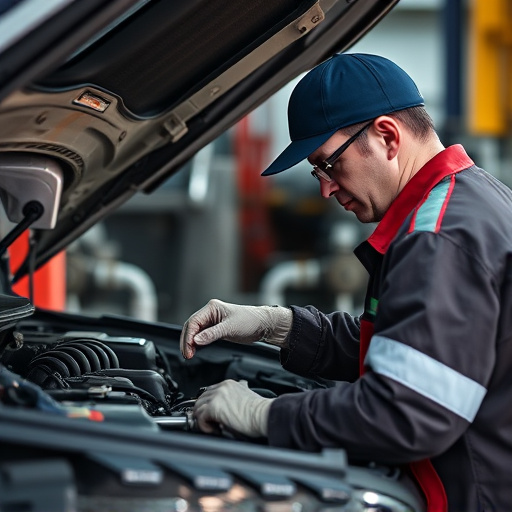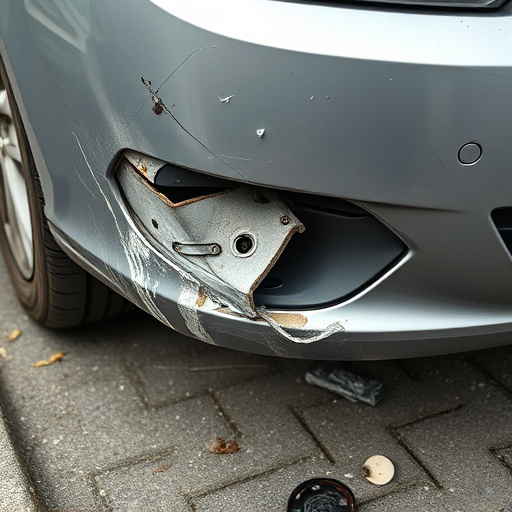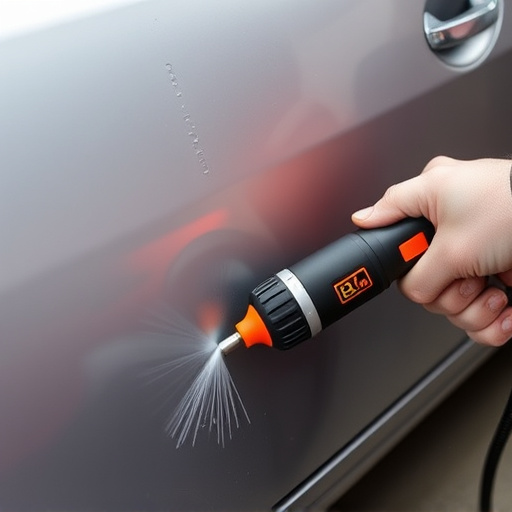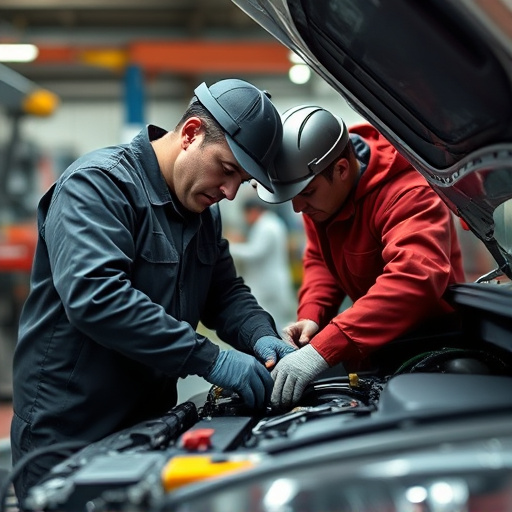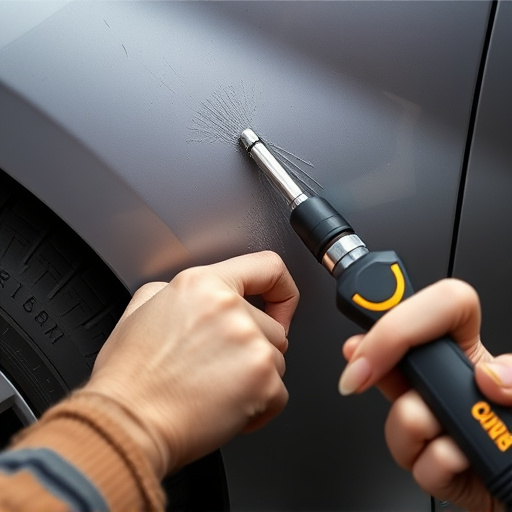Induction heating systems revolutionize auto repair with precise, versatile metal treatment. Key factors include frequency, power, and coil design for optimal performance and safety. Safety measures like training, gear, ventilation, and maintenance are vital. Regular inspections, troubleshooting, and advanced features ensure system longevity and quality repairs.
Discover the best practices for seamless operation of induction heating systems in your shop. This comprehensive guide delves into essential knowledge about these powerful tools, including fundamental basics and advanced techniques. From prioritizing safety measures for efficient, hazard-free operations to practical maintenance and troubleshooting tips, we equip you with the insights needed to maximize productivity and minimize downtime. Implement these strategies for optimal performance of your induction heating systems.
- Understanding Induction Heating Systems Basics
- Safety Measures for Efficient Operations
- Maintenance and Troubleshooting Tips
Understanding Induction Heating Systems Basics
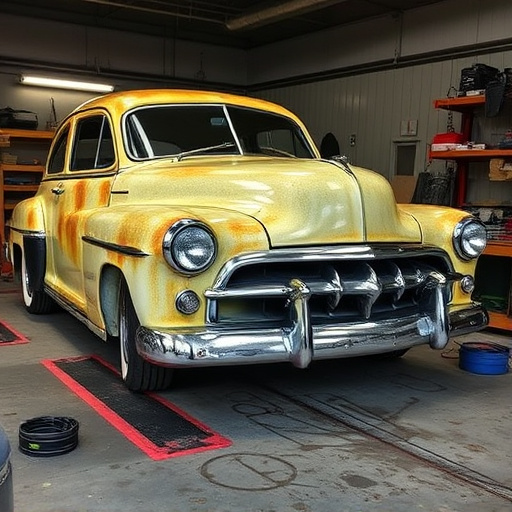
Induction heating systems are a powerful tool for various industrial processes, and their application in auto repair shops has revolutionized many tasks traditionally done through intense heat sources. These systems work by using electromagnetic fields to generate heat directly within the material being treated, making them highly efficient and precise. This technology is particularly beneficial for tasks like hardening metal surfaces, annealing, or even melting metals for specific applications.
In an auto repair shop setting, induction heating is often utilized for processes such as paintless dent repair, where precise heating allows for effective and localized metal manipulation without damaging the surrounding area. Understanding how these systems operate involves grasping concepts like frequency, power output, and coil design. The right setup ensures optimal performance, safety, and reduced energy consumption—all essential factors for efficient car repair shop operations.
Safety Measures for Efficient Operations

When operating induction heating systems in shops, safety should be the top priority for all personnel involved. This includes ensuring that all operators are properly trained and understand the potential risks associated with the equipment. Induction heating systems generate high temperatures, which can lead to severe burns or eye damage if proper protective gear is not worn. Adequate ventilation and fire suppression systems must also be in place to mitigate the risk of fires or explosions. Regular maintenance checks on the systems are crucial to identify any potential issues before they escalate.
For efficient operations in a dent repair or collision repair shop, it’s essential to maintain clear communication protocols. This involves establishing standard operating procedures (SOPs) and ensuring that all team members follow them strictly. Additionally, implementing safety signage and training programs can help create a culture of awareness. In car scratch repair scenarios, precise control over the heating process is vital to avoid overshooting the required temperature, which could lead to material degradation or discoloration. Thus, continuous monitoring and calibration of the induction heating systems are best practices that contribute to both safety and the quality of repairs in such shops.
Maintenance and Troubleshooting Tips
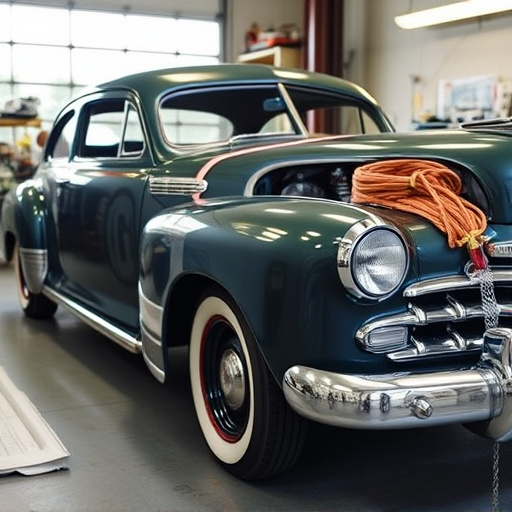
Regular maintenance is key to ensuring your induction heating systems run smoothly and efficiently. Schedule routine inspections to check for any signs of wear or damage, especially on critical components like coils and power supplies. Cleanliness is also paramount; ensure the work area is free from debris and contaminants that could affect performance. For optimal results, maintain precise control over parameters such as frequency, power output, and cooling systems.
When issues arise, effective troubleshooting can minimize downtime in your shop. Familiarize yourself with common problems—like arcing, uneven heating, or erratic performance—and their potential causes. Invest in quality diagnostic tools to pinpoint the issue accurately. For specialized tasks like paintless dent repair or automotive restoration, consider upgrading your systems with advanced features designed to enhance precision and control, thereby streamlining your work processes.
Induction heating systems are powerful tools that, when operated correctly, can significantly enhance metalworking capabilities in shops. By understanding the basics, prioritizing safety, and implementing regular maintenance, businesses can ensure efficient and effective operations. Remember, proper training and adherence to best practices are essential for maximizing productivity while minimizing risks associated with induction heating systems.
